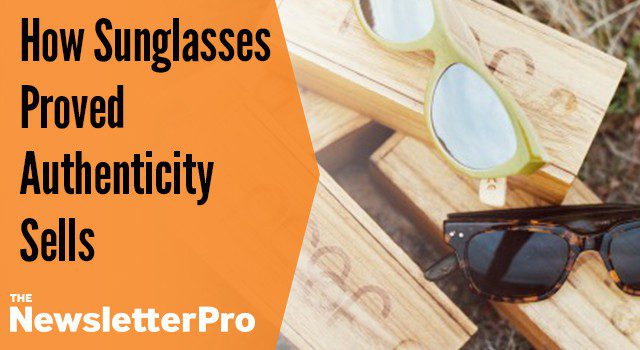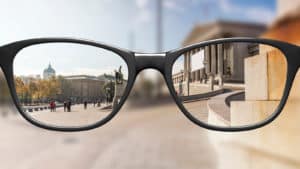
The list of “Shark Tank” failures is longer than the Cleveland Browns’ championship drought. However, while many pitches fail on the show, never to be resuscitated, a few business owners each season make it through the gauntlet, and a few others decide not to let Mark Cuban’s refusal to invest end their dreams. Brothers Brooks, Tanner, and Taylor Dame were three of the latter category. The Idaho entrepreneurs took their idea for handcrafted, sustainably made sunglasses to the “sharks,” but came out empty-handed. Still, their passion for their product and altruistic approach to business wasn’t thwarted by a lack of funding. The trio leaned into their family history, which ultimately led not only to wealth and success but also a new kind of business model based on authenticity.
Proof You Can See
 The Dame brothers founded their sunglasses company, Proof Eyewear, in 2010. While Proof was a sibling venture from the start, it wasn’t the first family business in the Dames’ history. In fact, Proof may never have happened had their grandfather not started a sawmill back in 1954. Drawing on his experience working at the mill, Brooks was the first of the trio to develop the concept for wooden sunglasses frames. As his idea took shape, Brooks moved his business from his head to that often used location for startup incubation: the garage.
The Dame brothers founded their sunglasses company, Proof Eyewear, in 2010. While Proof was a sibling venture from the start, it wasn’t the first family business in the Dames’ history. In fact, Proof may never have happened had their grandfather not started a sawmill back in 1954. Drawing on his experience working at the mill, Brooks was the first of the trio to develop the concept for wooden sunglasses frames. As his idea took shape, Brooks moved his business from his head to that often used location for startup incubation: the garage.
In the nine years since its founding, Proof has expanded far off Brooks’ property in spite of its rejection by the sharks. These days, its eco-friendly sunglasses made from wood, cotton-based acetate, recycled aluminum, and repurposed skateboard decks can be found in 20 countries and bring in millions of dollars in annual revenue. As impressive as that upward trajectory is, though, it isn’t what makes Proof unique. That honor goes to the fact that unlike other companies with similar origins, like Apple and Amazon, Proof’s drive for growth never outpaced the Dames’ passion for giving back.
Wooden frames were revolutionary at the time, but the Dame brothers knew that trends come and go. What they believed never disappears is the impact a company can have on the world. Like Ray-Ban, Kate Spade, Maui Jim, Coach, and Oakley, Proof creates sleek eyewear that enhances an individual’s style — but it also uses its influence as a platform to give back. While that choice had altruistic roots, it has also proved to be good business.
Millennials make up a significant portion of the sunglasses market, and as a generation, they want the products they purchase to stand for something and have value beyond the aesthetic. Proof has both factors in spades.
Authentic Altruism
 Each year, Proof comes up with an initiative to give back in ways that matter to its employees. Funding for those projects comes directly from Proof’s sales. In fact, for every frame sold, $10 goes to what Proof calls its “Do Good Program.” In 2015, the company donated $25,000 to build two eye clinics in India — where one-quarter of the world’s blind population resides — to help those in need. Since its founding, the company has contributed to tsunami relief in Japan, helped rehabilitate child soldiers in Africa, planted trees in Haiti, offered dental and eye care to people in Nepal, and, most recently, pioneered a comprehensive initiative to battle poverty in Peru.
Each year, Proof comes up with an initiative to give back in ways that matter to its employees. Funding for those projects comes directly from Proof’s sales. In fact, for every frame sold, $10 goes to what Proof calls its “Do Good Program.” In 2015, the company donated $25,000 to build two eye clinics in India — where one-quarter of the world’s blind population resides — to help those in need. Since its founding, the company has contributed to tsunami relief in Japan, helped rehabilitate child soldiers in Africa, planted trees in Haiti, offered dental and eye care to people in Nepal, and, most recently, pioneered a comprehensive initiative to battle poverty in Peru.
As of 2017, they boasted the following achievements:
- $73,385 donated from purchased frames
- 240 cataract surgeries
- 200 trees planted
- 1,209 glasses donated
- 2 tons of garbage picked up
- 5,954 health and vision screenings
- 338 local community service hours
- 8 countries impacted
Proof’s socially conscious business model is attractive to the people it caters to, but what’s truly revolutionary about the brand is its raw authenticity. If you spend time at Proof’s headquarters in Boise or speak to its employees, you’ll quickly understand that sunglasses are just a vehicle for the company’s larger mission to change the world.
At the core of Proof’s brand is human connection. That’s not something you can fake or manipulate. It comes from an incorruptible idealism, and that’s what the market wants. Consumers are no longer craving the sexiest brands out there. To survive in the 21st century, products need to be social, substantial, and sustainable to reach the newest echelon of buyers. That said, you can’t fabricate authenticity. It has to come from a genuine place. It was their understanding of that concept that lead to the Dame brothers’ success.
Now, take a look at your company. Have you incorporated authenticity into your business model?






